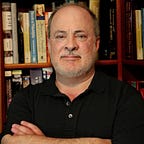Nothing To Do
Disability, Chronic Illness, and Passing Your Time
Nothing to Do
For me, a chronically ill, disabled individual, there is a phrase that I can only speak to people like me. If you speak it, it has a different meaning.
“I have nothing to do.”
I recently lost a connection I had to a volunteer job. This job, though quite small, was my connection to the world. Now, I have nothing to do. And if I say that to my friends, they kindly acknowledge my disappointment, but do not understand what this job meant to me.
My life, your life, is made up of projects. Work, career, raising a family, taking care of others, hobbies — these are the things that give life meaning. Without them, there is really nothing to do. I lost my career, my ability to work an 8-hour day, or even a 4 -hour day. My level of fatigue and pain dictate whether I can engage in things I enjoy, like painting, play guitar, reading, going out to dinner, or even having more than an hour conversation with a friend. The difference between me and other people is that, often I can’t fill my day regardless of what I plan to do.
“Nothing to do” is a deeply troubling feeling. It’s not boredom or being restless. It is truly nothing that I, and only I, should do. There is no project, no place for me to make or do something with any sense of purpose…
